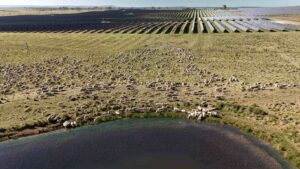The human cost of burning fossil fuels to generate energy has been laid bare in a new report from Greenpeace this week, with pollution from Australia’s coal-fired power plants found to be causing hundreds of premature deaths a year, as well as asthma symptoms in thousands of children.
The report, titled Lethal Power, was put together by a group of scientists, researchers, and medical professionals, including former Australian of the year Professor Fiona Stanley, coal pollution expert Dr Aidan Farrow, and economist and former leader of the federal Liberal Party, Dr John Hewson.
It finds that pollution from Australia’s 22 remaining black and brown coal power stations is responsible for 800 premature deaths, 14,000 asthma symptoms among children, and 850 cases of low birth weight in newborns each year.
And it calls on governments to ramp up Australia’s pollution and emissions standards, both to protect the health of its people and to help speed up the exit of coal plants from the national electricity market.
Jonathan Moylan, Greenpeace Australia Pacific campaigner, said many Australians would be shocked to learn that coal power plants in Australia were more loosely regulated than their counterparts in China and the EU.
In April of this year, National Pollutant Inventory data showed that the Vales Point black coal-fired power station in New South Wales had recorded a sharp spike in the release of various pollutants in the 2018-19 financial year.
This included an almost threefold increase in PM2.5 particulate pollution, which can lead to respiratory and heart conditions, as well as increases in other pollutants.
Delta, at the time, denied the plant had a dangerous pollution problem – despite it being one of Australia’s largest greenhouse gas emitters – and argued that the data reflected “the diminished performance of a number of filter bags” that coincided with the time of testing.
“The evidence is in; Air pollution from burning coal kills,” said Hewson in a statement on Wednesday, accompanying the report’s release.
“Governments of all stripes must now come up with a plan to ensure coal is completely phased out and replaced with renewable energy as quickly as possible, with regional plans to prepare communities for the economic adjustment. This transition should be the urgent policy focus.”
Worryingly, however, many of Australia’s governments appear more focused on propping up polluting and inefficient coal plants that shutting them down. Vales Point is expected to receive as much as $11 million from the federal government’s UNGI scheme to help pay for upgrades.
And with the threat of dangerous climate change still not enough to shock the Morrison government into action, the Greenpeace report this week hopes to use the weight of medical science – and stark human health statistics – to speed up the shift away from coal.
“Now that we know the devastating toll that coal is taking on Australian lives and livelihoods, governments have no excuse not to act,” said Moylan.
“We need urgent action from state environment ministers to tackle dangerous air pollution.”
“What greater impetus can there be for politicians to act than to safeguard the health of all Australians, including our most vulnerable?” added Professor Stanley, an epidemiologist who has been active in efforts to educate Australians about the threat of Covid-19.
“The death and illness outlined in this report were not caused by some Chernobyl like mishap,” she said.
“[They] are the tragic byproducts of coal-fired power generation, by design. But we no longer need to sacrifice lives to coal power when we can generate all the electricity we need from clean and renewable sources like wind and solar.”





